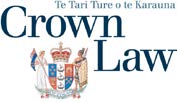
SETTLEMENTS –
POLICY AND GUIDELINES
Policy
The Attorney-General has overarching responsibility for the conduct of the Crown’s legal
business.
Settlements under which the Crown is to make payments of compensation or
damages or ex gratia payments
Counsel should be aware of the requirements of Cabinet Office circular
CO (18)2 with
regard to the payment of compensation or damages in settlement of claims or the
payment of ex gratia expenses:
• Where the proposed quantum of compensation or damages in settlement of
claims is $150,000 or less the
prior approval of the Chief Executive (or his or her
delegate) is required.
• Where the proposed quantum of compensation or damages in settlement of
claims is more than $150,000 and up to $750,000 the
prior approval of the
Appropriation Minister is required.
• Where the proposed quantum of compensation or damages in settlement of
claims is more than $750,000 the
prior approval of Cabinet is required.
• Where the proposed quantum of ex gratia expenses is $30,000 or less the
prior
approval of the Chief Executive (or his or her delegate) is required.
• Where the proposed quantum of ex gratia expenses is more than $30,000 and up
to $75,000 the
prior approval of the Appropriation Minister is required.
• Where the proposed quantum of ex gratia expenses is more than $75,000 the
prior approval of Cabinet is required.
Separate legal certification or endorsement of payments in compensation or
damages in settlement of claims or ex gratia payments
The Cabinet Circular also requires separate legal certification that a payment in settlement
of a claim is in order before that decision can be made. That certification should be
provided by a departmental Chief Legal Advisor (up to $75,000). Claims above $75,000
must be endorsed by Crown Law (up to $750,000) unless there is a court judgment
determining liability. For settlements over $750,000, Crown Law’s role is to advise
Cabinet.
This policy sets out the internal processes through which Crown Law will provide advice
to Cabinet relating to settlements in excess of $750,000.
Under the Circular, neither departmental chief legal advisors nor Crown Law have a
formal role in certifying or advising on
ex gratia payment decisions, but in practice will
often be cal ed on to provide advice.
To ensure consistency, this policy also sets out how any Crown Law advice on
ex gratia
settlements wil be provided.
Crown Law requirements for provision of legal endorsement for proposals with
financial implications concerning payments of compensation or damages or ex
gratia payments
Compensation or damages in settlement of claims
Crown counsel or senior crown counsel may, on behalf of the Crown Law Office,
provide endorsement that a settlement is in order where the proposed quantum of
Settlements- policy and guidelines
1
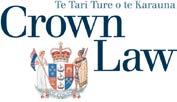
SETTLEMENTS –
POLICY AND GUIDELINES
compensation or damages in settlement of the claim is (by way of payment) up to
$150,000.
A Deputy Solicitor-General may, on behalf of the Crown Law Office, provide
endorsement of a settlement where the proposed quantum of compensation or damages
in settlement of the claim is up to $750,000.
Any advice provided to Cabinet in relation to settlements over $750,000 must be by way
of a legal opinion and include confirmation the Solicitor-General agrees with the advice.
Note that unde
r CO (18)2:
• the relevant departmental Chief Legal Advisor, instead of the Crown Law Office,
may provide certification in relation to settlements by way of payment up to
$75,000; and
• no certification or endorsement by Crown Law is required for payment of costs
or damages awarded by a Court, or for settlement amounts that are “endorsed
by” a court judgment.
Ex gratia expenses
CO (18)2 does not require legal certification or endorsement of ex gratia payments. That
is presumably because these payments are “made without the giver recognising any
liability or legal obligation; the payment is made out of goodwil or a sense of moral
obligation.” Crown Law’s advice is none the less often sought on the making of an ex
gratia payment. Crown Law advice relating to the appropriateness of
ex gratia payments:
• may be provided by Crown Counsel or Senior Crown Counsel, up to $30,000;
• may be provided by a Deputy Solicitor-General, up to $75,000;
• must be provided by the Solicitor-General, for amounts over $75,000.
All settlements: Additional requirements for approval of Deputy Solicitor-General Notwithstanding the financial approval levels indicated in this policy, counsel should also
request the approval of a Deputy Solicitor-General for endorsing that a settlement is in
order or providing advice on the appropriateness of making
ex gratia payments:
• where the significance of the legal issues warrants it, especial y in respect of the
potential for any settlement to impact across Government; or
• where the claim raises al egations of breach of
s 9 of the New Zealand Bill of Rights
Act 1990;
• where the proceedings (and any resultant settlement) is likely to give rise to issues of
public/policy importance; or
• where the proposed settlement exceeds $150,000 (or $1 million in relation to tax or
levies, duties or charges in respect of the Customs and Excise Act 2018) by way of
money foregone.
If in doubt, counsel should err on the side of involving a Deputy Solicitor-General.
Circular applies to payment by the Crown only
Crown Law interprets the provisions of
CO (18)2 relating to proposals to incur expenses
Settlements- policy and guidelines
2
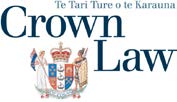
SETTLEMENTS –
POLICY AND GUIDELINES
in relation to publicity, compensation or damages in settlement of claims, and
ex gratia
payments as only applying to the situation where the Crown is proposing to make a
payment. We do not consider the Circular covers payments made to the Crown to settle
claims. An example in settling costs following successful litigation or where the Crown
forgoes a payment. Nevertheless, this policy covers al settlements under the heading
above “All settlements: Additional requirements for the approval of the Deputy Solicitor-
General”.
Applies to
This policy applies to all Crown Law counsel including:
• full time staff;
• part time staff;
• casual staff; and
• contractors.
Rationale
Paragraph 5.4 of th
e Attorney-General’s Civil Litigation Values provides that the Crown
will:
Consider the possibilities for, and initiate where appropriate,
alternative means of avoiding or resolving litigation, including by co-
operation or other agreed resolution.
In addition, Crown Law wil often be involved in, or be aware of, the settlement of claims
by departments and ministries as a result of:
• Advice sought from the Solicitor-General over proposed settlements or ex gratia
payments to ensure consistency with other similar decisions across Government.
• Specific instructions received as part of a request for advice or as a result of
litigation.
• The requirements of the Cabinet Office circular on Guidelines and Requirements for
Proposals with Financial Implications
[CO (18)2], which provides guidance to
departments and ministries on approval limits for settlements. In particular, para 70
of the circular
[CO (18)2] specifies that for settlements up to $750,000 ‘[e]xpenses
for compensation or damages in settlement of claims should be endorsed by the
Crown Law Office or a court judgment’ and for more than $750,000 that “Cabinet
considers advice from the Crown Law Office”.
The settlement of claims against the Crown can be subject to political and public scrutiny.
It is important that the Attorney-General is kept ful y informed about the progress and
conclusion of such claims. In addition, the Government has particular obligations in
relation to al eged breaches of s 9 of the New Zealand Bill of Rights Act 1990
There is a need to coordinate Crown Law’s knowledge of and involvement in settlement
proposals, and to communicate this information to the Attorney-General as appropriate
and in a timely way.
The co-ordination of Crown Law’s knowledge is supported by a
settlements register,
overseen by the Deputy Solicitor-General (Attorney-General Group).
Forms
Any settlement agreement entered into must be appropriately recorded. If the agreement
must be filed in court (normally not required), you can use the following precedent
Settlements- policy and guidelines
3
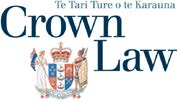
SETTLEMENTS –
POLICY AND GUIDELINES
settlement agreements:
•
Memorandum of Settlement and Release – High Court
•
Memorandum of Settlement and Release – District Court
For al settlements involving the Inland Revenue Department use the Inland
Revenue Department’s settlement template. The Revenue Team Manager must
be contacted to obtain a copy of this form.
Other References Refer also to:
• Cabinet Office Circular
[CO (18)2]: Cabinet has delegated to Chief Executives and
Ministers financial authority to settle claims against Government parties. However,
financial limits are just one aspect of settlement decisions.
Paragraph 4.6,
Cabinet Manual: The conduct of legal proceedings involving the Crown is
the responsibility of the Attorney-General. Settlement of a claim falls within this area of
responsibility, but Cabinet has reserved to itself the authority to settle claims alleging
misuse of the powers of Corrections officers and probation officer:
CAB Min (02) 26/10.
Settlements- policy and guidelines
4
link to page 5 link to page 5
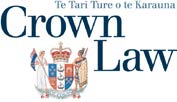
SETTLEMENTS –
POLICY AND GUIDELINES
GUIDELINES
1.
The Guidelines set out specific requirements relating to:
1.1
the settlement of claims involvi
ng s 9 of the New Zealand Bil of Rights Act
1990;
1.2
collation of Settlement Information;
1.3
confidentiality of Settlements; and
1.4
reporting.
CLAIMS INVOLVING S 9 OF THE NEW ZEALAND BILL OF RIGHTS ACT 1990
2.
Settlement proposals relating to
s 9 of the New Zealand Bill of Rights Act 1990 (right not
to be subjected to torture or cruel treatment) raise particular issues.
3.
Any settlement proposal (including settlements being managed within client departments)
that incorporates reference to an alleged breach of s 9, or to al eged acts of violence by
the state, is to be referred to the Solicitor-General for prior approval (via the relevant
Deputy Solicitor-General), and copied to the Team Manager of the Human Rights Team.
4.
The Crown attempts to settle claims in appropriate cases.
1 The settlement of claims
relating to al eged breaches of the New Zealand Bil of Rights Act 1990 (the Act) is
consistent with the Act’s requirement that rights breaches be effectively remedied.
Particular issues arise in respect of proposed settlements of claims relating to s 9 Act.
5.
The Government has a number of obligations in relation to al eged breaches of s 9. These
Guidelines are designed to assist in ensuring that the Government’s obligations are met.
6.
Section 9 of the Act provides:
Right not to be subjected to torture or cruel treatment—
Everyone has the right not to be subjected to torture or to cruel, degrading,
or disproportionately severe treatment or punishment.
7.
New Zealand is party to the Convention against Torture and Other Cruel, Inhuman or
Degrading Treatment or Punishment (the Convention). State parties are required to
submit reports on the measures they have taken to give effect to their undertakings under
the Convention. The Committee Against Torture
2 has issued general guidelines on how
the reporting obligation is to be met, including that information should be provided to
the United Nations on:
Complaints, enquiries, indictments, proceedings, sentences, reparation and
compensation for acts of torture and other cruel, inhuman or degrading
treatment or punishment.
1
Attorney-General’s Values for the Conduct of Crown Civil Litigation, at [5.4].
2
The Committee Against Torture (CAT) is the body of 10 independent experts that monitors the implementation
of the Convention by its State parties.
Settlements- policy and guidelines
5
link to page 6 link to page 6 link to page 6
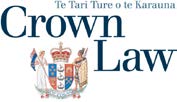
SETTLEMENTS –
POLICY AND GUIDELINES
8.
There is also a requirement that a person making al egations of torture and the like be
able to have any such al egation promptly and impartially investigated.
3 The
Government’s position has previously been that a Court hearing satisfies this obligation.
9.
Procedures for responding to al egations of mistreatment are likely to come under
scrutiny through inspections by national and international bodies acting under the Crimes
of Torture Act 1989
4 and complaints to United Nations bodies.
10.
It is not uncommon for litigants to cite a range of al eged breaches of various provisions
of the Act, along with numerous other causes of action. Global settlement of such claims
has the potential to cause at least two problems. Firstly, it may give rise to a requirement
to report under the Convention. Secondly, it tends to dilute the importance of a s 9
allegation, and encourage allegations of breach to regularly feature in settlement
proposals. The Crown’s position (upheld by the Supreme Court in Taunoa
5) is that the
threshold for breach of s 9 is high. It is desirable that claimants, and claimant counsel,
appreciate that s 9 cases are treated seriously and wil not lightly be accepted for the
purpose of a settlement. There is also the point that, in instances that involve al egations
of deliberate mistreatment, acceptance of a s 9 claim may connote a Crown admission of
criminal wrongdoing by those responsible and/or may engage a Crown obligation to
instigate a criminal investigation.
11.
Settlement of a claim on the basis of an alleged breach of s 9 will likely be rare, and will
only occur after thorough investigation.
APPROACH
12.
The Crown must be satisfied that the threshold requirements of s 9 are met prior to any
settlement of a claim that includes an alleged breach of that provision. This will involve
comprehensive determination, including such investigation as is necessary, and
consideration of the facts of the case. Determination of disputes of fact and of instances
where it is uncertain whether the threshold is met wil usual y best be resolved by a Court.
13.
A plaintiff who insists on adopting a multi cause of action approach to litigation wil
essential y have three options. He/she can:
13.1
drop the s 9 complaint and pursue settlement based on other (more likely)
grounds (the settlement agreement would not refer to s 9);
13.2
pursue the s 9 complaint along with the other grounds (but this would general y
result in no settlement, as the matter would be brought before the Court for
determination); or
13.3
pursue the s 9 complaint and have it thoroughly investigated.
14.
Any proposal to settle a claim that incorporates a s 9 component is to be referred to the
Solicitor-General for prior approval, and copied to the Team Manager of the Human
Rights Team.
15.
Any case in which a s 9 breach is found, or on which a settlement is based, is to be
notified to the Human Rights Team Manager.
3
Convention, Article 13.
4
As amended by the Crimes of Torture Amendment Act 2006.
5
Taunoa v At orney-General [2008] 1 NZLR 429.
Settlements- policy and guidelines
6
link to page 7 link to page 7 link to page 7
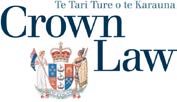
SETTLEMENTS –
POLICY AND GUIDELINES
COLLATION OF SETTLEMENT INFORMATION
16.
The Deputy Solicitor-General, Attorney-General Group has overall responsibility for
coordinating the settlement information from other Deputy Solicitors-General and
maintains the
settlements register, recording details of the matter and the terms of
settlement. Details of al settlements that counsel are involved with must be advised to
the Deputy Solicitor-General, (Attorney-General Group) as soon as practicable after
settlement is reached.
17.
Confidential settlements must be entered on the
settlements register but the confidential
terms will not be included on the register. The intention is that the broad factual
circumstances of each case and the fact of a settlement wil usual y be clear enough to
assist counsel in ascertaining whether settlements have been made in similar fact
situations.
18.
Details of any settlements relating to s 9 of the Bil of Rights Act are to be identified on
the
settlements register. The purpose of identifying these settlements is to enable Crown
Law to assist the Government in discharging its reporting obligations under the
Convention, and to ensure that al egations under s 9 that amount to criminal wrongdoing
are considered for referral to the Police.
CONFIDENTIALITY OF SETTLEMENTS
19.
In some contexts there are statutory provisions that require information in a settlement
agreement to be kept confidential. An example of this is s 81 of the Tax Administration
Act 1994 that imposes an obligation of secrecy on Inland Revenue Officers. In such
statutory contexts a confidentiality clause should be included in any settlement agreement.
20.
In al other cases there is a presumption against the use of confidentiality clauses in
settlement agreements as such clauses must withstand claims for disclosure made under
the Official Information Act 1982 (the Act). The Act contains the principle that
information shal be made available unless there is a “good reason” for withholding it.
6
21.
Often in settlement negotiations a client department considers that confidentiality will
facilitate settlement. Its reasons will include avoiding the risk that the settlement will be
used precedential y, a desire to keep unhelpful facts from the public eye together with the
risk of inaccurate or slanted reporting.
22.
In deciding how to advise client departments, and in making any necessary decisions as to
adding a confidentiality clause into a settlement agreement, the starting point is whether
there is a reason for withholding the information in the settlement agreement in terms of
the principles set out in the Act.
23.
If there is a conclusive reason for withholding the information in the settlement
agreement as set out in the Act,
7 then a confidentiality clause should be added to the
agreement.
24.
If there is merely a good reason for withholding the information in the settlement
agreement,
8 an evaluation of the public interest in the facts and issues in the case should
be made. This includes considering the principles of open government and
6
Section 5.
7
As per ss 6 and 7 of the Act.
8
As per s 9 of the Act.
Settlements- policy and guidelines
7
link to page 8 link to page 8
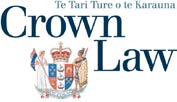
SETTLEMENTS –
POLICY AND GUIDELINES
accountability, including in respect of the use of public funds. The issue is whether,
notwithstanding that a good reason for withholding information exists, in the
circumstances of the particular case, the withholding of that information is outweighed by
other considerations which render it desirable, in the public interest, to make the
information available.
9
25.
A good reason for withholding information may include enabling the Minister concerned
or the Department to carry on, without prejudice or disadvantage, negotiations.
10
Prejudice to negotiations may in particularly sensitive cases be taken to include
circumstances in which confidentiality for a party (including the Crown) was a key driver
for the offer of settlement. This in general terms may be seen as acting in the public
interest by avoiding (for both parties) the cost of litigation, while obtaining efficient
resolution thereby saving both Crown and judicial resources.
26.
Less obviously there may wel be confidential settlements to which s 9(2)(a) (protecting
privacy), s 9(2)(ba) (obligation of confidence), s 9 (2)(d) (prejudicing the substantial
economic interests of New Zealand) and d 9(2)(i) (prejudice to commercial activities) may
apply. As to s 9(2)(a) there have been instances where the disclosure of a settlement
could affect the safety/mental health of a particular employee.
27.
Client departments seeking the inclusion in any settlement document of a confidentiality
clause should be advised whether in the circumstances of the particular case an
application for disclosure under the Act would likely be upheld despite the claim for
confidentiality.
28.
Accordingly a confidentiality clause should be inserted into a settlement agreement only
where:
28.1
There is a statutory provision that prohibits the information from being
disclosed; or
28.2
There is a conclusive reason for withholding the information in the settlement
agreement as set out in the Act; or
28.3
There is a good reason for withholding the information in the settlement
agreement and that good reason is not outweighed by the public interest in
disclosure.
29.
Put another way, there must be clearly articulated good reasons in terms of the principles
set out in the Act or other legislation to justify confidentiality.
TAX
30.
Most settlements we advise on will not have tax implications for the Crown. However,
there wil be exceptions. For example, if an insurer is contributing towards the
settlement, its contribution is likely to be taxable. The relevant government department
will have to pay GST output tax while the insurer receives a GST input tax credit. Unless
the tax effect is understood by the relevant department, the department/Crown is
receiving a smaller contribution from the insurer than anticipated. The obligation to pay
output tax can also have a significant impact on the department’s appropriations.
9
Section 9(1) of the Act.
10
Section 9(2)(j) of the Act.
Settlements- policy and guidelines
8
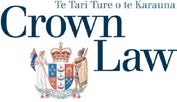
SETTLEMENTS –
POLICY AND GUIDELINES
31.
To avoid potential conflicts of interest, Crown Law does not provide tax advice other
than to Inland Revenue. A mechanism has been put in place where Inland Revenue can
provide tax advice to other departments. Departments can also obtain external tax
advice. A link that sets out the position with Inland Revenue and contains contact details
is: do
c 6328829.
32.
When a settlement of a dispute is under consideration, we should advice the client
department that we do not offer tax advice and they should consider whether they need
to obtain independent tax advice.
REPORTING
33.
As it is the Attorney-General who is responsible for the conduct of litigation involving
the Crown, it is important that he or she be advised of any settlement proposals and/or
agreements, as appropriate. This may be done by way of the weekly report to the
Attorney-General or via separate reporting papers.
SETTLEMENT PRECEDENT
34.
A link to a draft settlement precedent that can be adapted is doc
3416756.
[END]
Policy and Guidelines Owner – Convenor, Professional Standards Committee.
Published on 17 November 2014.
Updated 30 June 2016, 10 December 2018, 15 August 2019, 12 November 2020, February 2021.
Next Review: February 2024
Settlements- policy and guidelines
9
Document Outline








